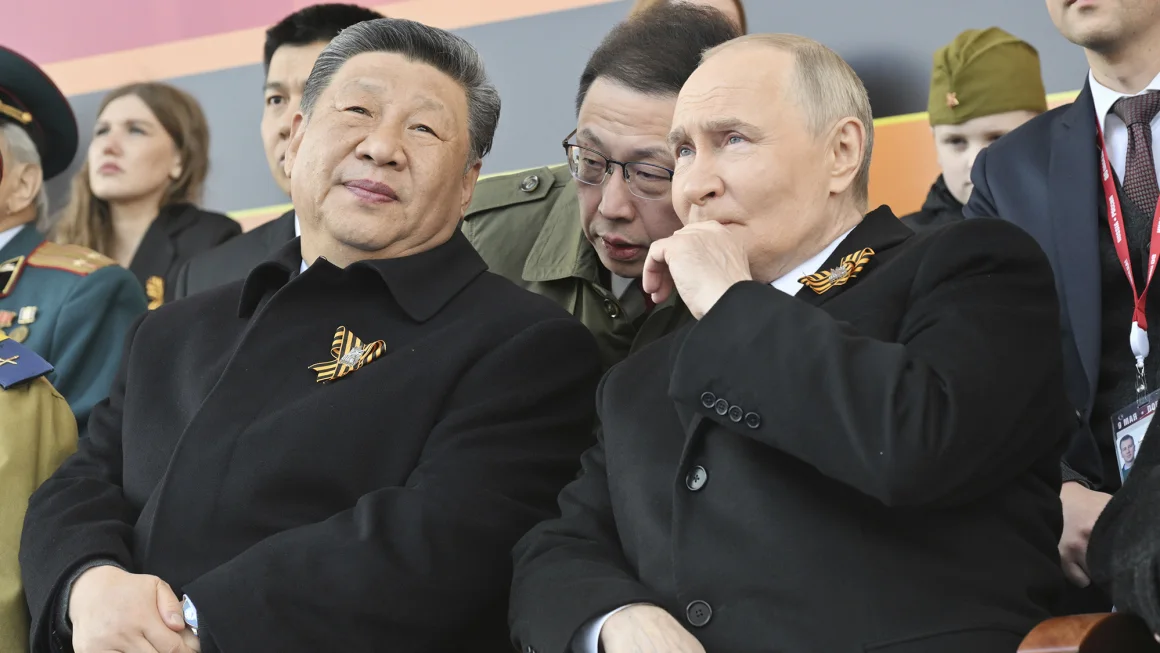Chinese President Xi Jinping and Russian President Vladimir Putin continue to project an image of unwavering solidarity, carefully curated for the global stage. During Moscow’s Victory Day parade, Xi stood prominently at Putin’s right—a symbolic placement traditionally reserved for trusted allies—as Chinese and Russian troops marched side by side through Red Square in a striking display of military unity.
Just hours prior, President Xi described the relationship between Beijing and Moscow as “unbreakable,” calling for the two nations to remain “friends of steel”—a phrase designed to underscore the depth of their strategic alignment.
This marks Xi’s 11th official visit to Russia since he assumed the presidency in 2013, and the two leaders have convened more than 40 times over the past decade. Putin, reaffirming the strength of the bilateral partnership, has already signaled his intention to visit China later in the year. In previous encounters, the two men have even exchanged a rare public embrace—an unusual gesture in the often-formal world of state diplomacy.
Yet, beneath the ceremonial choreography and rhetorical affirmations lies a more complex geopolitical calculus—one shaped by shared interests, mutual dependencies, and carefully navigated differences. The optics of friendship may be seamless, but the substance of the Sino-Russian relationship remains layered and strategic.
Read also: Russia-Ukraine Truce Begins As Putin’s Ceasefire Takes Effect
“We see a lot of exchanges between the two men and patriotic displays of togetherness,” said Mathieu Boulegue, from the Center for European Policy Analysis.
“They can be friends on one end or co-operating on one end and then ripping each other apart on others, and actually be competitors in certain aspects of their relationship.
“We get wowed by the symbolism. There’s a lot of performance around this relationship. But it’s interesting to look at the real substance.”
In reality, President Xi Jinping is engaged in a delicate diplomatic balancing act. While Russia remains a strategic partner, Vladimir Putin’s prolonged war in Ukraine has rendered him a pariah across much of the international community. For Beijing, maintaining close ties with Moscow risks alienating other vital global relationships—particularly at a time when it is locked in a growing economic rivalry with the United States.
China has been working assiduously to cultivate stronger connections with European capitals, intensifying its diplomatic charm offensive in the wake of Donald Trump’s return to the U.S. presidency. As Washington becomes increasingly erratic in its global posture, Beijing is positioning itself as a more predictable and constructive alternative.
Signs that these efforts may be bearing fruit emerged earlier this week. In a symbolic gesture marking 50 years of diplomatic ties, European Commission President Ursula von der Leyen and European Council President António Costa exchanged formal messages with President Xi and Premier Li Qiang—underscoring a continued interest in maintaining strong EU-China relations despite the geopolitical tightrope China is walking.

